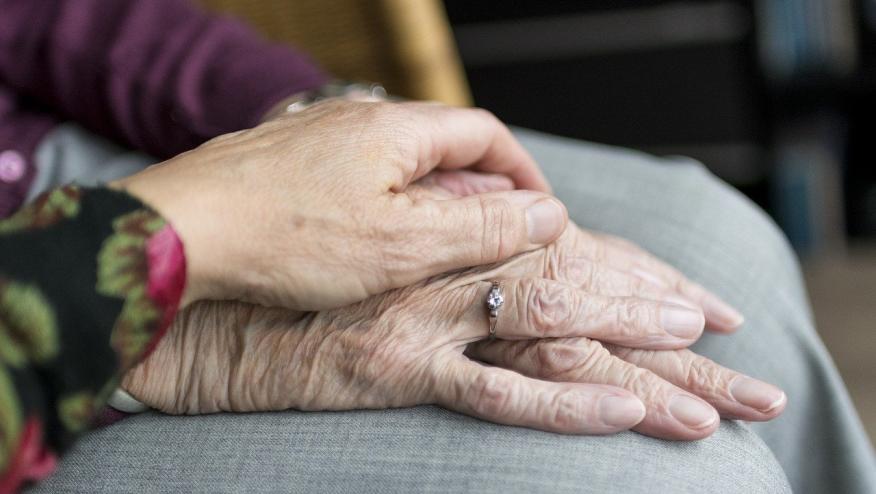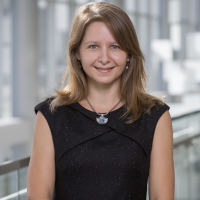Mentoring is Personal Save

As I was training as a rheumatologist, I found myself drawn to rheumatologic disorders in older patients. In particular, I was intrigued by programmatic development that could improve both disease outcomes and older adults’ quality of life. This was not the “sexiest” topic in rheumatology and it was hard to figure out how to get started.
I was extremely fortunate to find a mentor, Dr. Liana Fraenkel, during fellowship who not only helped me with the academic pieces I needed to develop but also how to navigate academic medicine with a meaningful personal life that, in my case, included parenthood. Liana danced the line between family, clinical care, education and research gracefully, while still being authentic. She was generous with her time and insights and through this relationship she taught me that the mentoring relationship goes far beyond the one project, publication, or fellowship and can be a lifelong relationship of collaboration and friendship.
The term mentoring dates back to Homer’s Odyssey, the ancient Greek poem, where Odysseus entrusts Mentor with the well-being of his son, Telemachus. Mentor, guides and advises Telemachus during this epic voyage. We are each on our own odyssey and as such we can all benefit from mentorship. Women and underrepresented minorities, in particular, benefit from mentoring and role models to ensure their success.
I am particularly passionate about mentoring because I have personally benefited from the mentors in my life. Career mentors can provide guidance about career or life decisions, and they help navigate the local environment, both in academic and community practices. Research or content mentors, how we traditionally view mentorship, are individuals who have expertise on a specific topic or methodology and can help develop our skills or scholarly output. Other models of mentoring include group or peer mentoring. A diverse network of mentors can have benefits such as balancing strengths and weaknesses of the team or providing alternative perspectives or approaches to solving problems.
Given the interdisciplinary nature of our field and questions we can ask, seeking mentors outside of Rheumatology can also be incredibly rewarding. As I became more involved in research that impacts older adults with rheumatologic diseases (#gerirheum), I sought out mentors in geriatrics, pain management, physical medicine and rehabilitation, and psychology. Through partnerships with colleagues in the #gerirheum space we have been able to raise the visibility of aging and geriatrics principles within the rheumatology field.
This brings me to the concept of success, which should be defined uniquely for you and by you. Your goals may be driven by your personal lived experiences as well as the deeply rooted dynamics you bring from your family, friends and colleagues. Success relies on understanding one’s own strengths, weaknesses and value. It took me over five years into my first faculty appointment to fully appreciate what success looked like for me. This enabled me to better utilize the resources around me and how to align my goals with the institution and organization that I operate in. The most effective mentors I’ve worked with have understood this and helped guide me through this process.
A few lessons that I have learned about being both a mentor and mentee.
- Be ready and willing to ask about mentoring.
- Take time to identify your goals and values, as this will guide the type of mentoring you seek out.
- The benefits of mentoring go both ways. The mentee drives the relationship. The mentor also learns a tremendous amount from the mentee.
- Mentorship is not intended to replicate the mentor. Ask yourself what you will learn from your mentor and use these skills to develop your own career.
- Comparing yourself and your trajectory to others’ is self-sabotage. Focus on what you can control—your own progress!
- Guidance and feedback from a mentor is not supposed to be congratulatory all the time. To grow we need to edit, sometimes delete or start all over, and reframe our ideas. Facing and overcoming obstacles are part of the process of learning.
- If a relationship is not productive, you can work to fix the relationship or identify another mentor.
- Ask yourself, annually if not more frequently: How can I contribute? Whether you are contributing original research and disseminating this to the community, or changing practice, or sharing your knowledge about quality improvement (the list goes on and on), mentors can help you achieve these contributions.
Finally, if you have not had a mentor before, it is not too late! The rheumatology community is close and here to support you. If you want to mentor others, recognize your strengths and value, and be ready to share that with your colleagues. The pipeline of rheumatologists depends on mentoring!










If you are a health practitioner, you may Login/Register to comment.
Due to the nature of these comment forums, only health practitioners are allowed to comment at this time.